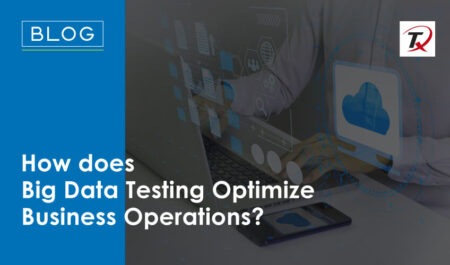Data observability is critical in today’s digital business landscape, particularly in enhancing Business Intelligence (BI) goals. This blog discusses the concept of data observability, its importance, and the five pillars essential for its effective implementation. It highlights how observability tools ensure data accuracy and reliability and help businesses quickly adapt to market trends and customer behaviors. By maintaining data integrity, observability aids risk management, compliance, and improved BI performance.
The post The Role of Data Observability in Achieving BI Goals first appeared on TestingXperts.
Libraries & Frameworks
Gen-AI is transforming SAP testing by automating the creation of test cases, generating synthetic data, and improving error detection, significantly enhancing efficiency and accuracy. The blog discusses how this technological advancement allows for faster adaptations to changes and continuous testing, supporting enterprises in maintaining their competitive edge. Businesses integrating gen-AI into their SAP testing protocols benefit from reduced costs, increased test coverage, and continuous improvement, ensuring their SAP systems operate with enhanced reliability and performance.
The post How is Generative AI Transforming SAP Testing? first appeared on TestingXperts.
Table of Contents What is Big Data Testing? Why is Big Data Testing Important? Challenges in Big Data Testing Impact of Big Data Testing on Business Decision-making Summary Why Choose Tx for Big Data Testing? Data is one of businesses’ most valuable assets, and it’s practically impossible for them to remain profitable and competitive without … Continue reading “How does Big Data Testing Optimize Business Operations?”
The post How does Big Data Testing Optimize Business Operations? first appeared on TestingXperts.
Intelligent automation is upscaling the quick-service restaurant (QSR) industry by optimizing processes from order to delivery. The blog discusses how utilizing AI, BPM, and RPA can boost efficiency, enhance customer service, and reduce operational costs. Despite challenges like initial investment and data quality, the strategic implementation of intelligent automation can significantly benefit QSRs, improving productivity and adapting to market trends efficiently.
The post Intelligent Automation in QSR: From Order to Delivery first appeared on TestingXperts.
The Property Hooks RFC passed a significant milestone, getting an overwhelmingly positive 34 “yes” votes and only 1 “no” vote.…
Laravel’s recent release of Laravel 11.4 introduced the Exceptions facade, which adds conveniences around asserting exceptions in Laravel’s exception handler.…
This week, the Laravel team released v11.4, with reversible form Prompts, a new Exceptions facade, Enum support in the Collection::mapInto()…
It’s 2024 and I’m calling it – Server-Side Rendering has officially made a comeback: in Laravel, where Livewire now has…
A lightweight and easy-to-implement countup & countdown animation component for React apps. The post Animated Countup Component For React appeared…
Laravel Stripe Connect helps you start your own marketplace platform using Stripe Connect, which allows you to make payments to…
An i18n toolkit for React, to ship multi-language apps fast. LLM-powered, and JSON-free. The post AI-powered i18n Toolkit for React…
Learn about the new updates to Nuxt’s Server Components. Continue reading on Vue.js Feed » Source: Read More
The Random package by Stephen Rees-Carter, generates cryptographically secure random values in a range of different formats through a simple…
PhpStorm has good automatic formatting of PHP files based on standards like PSR-2, PSR-12, Symfony, Laravel, etc.; however, there have…
PhpStorm, the PHP IDE by JetBrains, released version 2024.1 this week with a brand new terminal, local AI code completion,…
A React component designed to highlight specific text within a larger body of text. The post React Text Highlighting Component…
A lightweight and high-performance QR code generator component for React Native, powered by the Skia rendering engine. The post QR…
This week, the Laravel team released v11.3, which includes multi-line text in Laravel Prompts, a Session:hasAny() method, a Context::pull() method,…
The Bartender package for Laravel is an opinionated way to authenticate users using Laravel Socialite. Bartender serves you a controller,…
Call it age. Call it apathy, if you must. I call it contentment. Much of my twenties were spent endlessly…



















